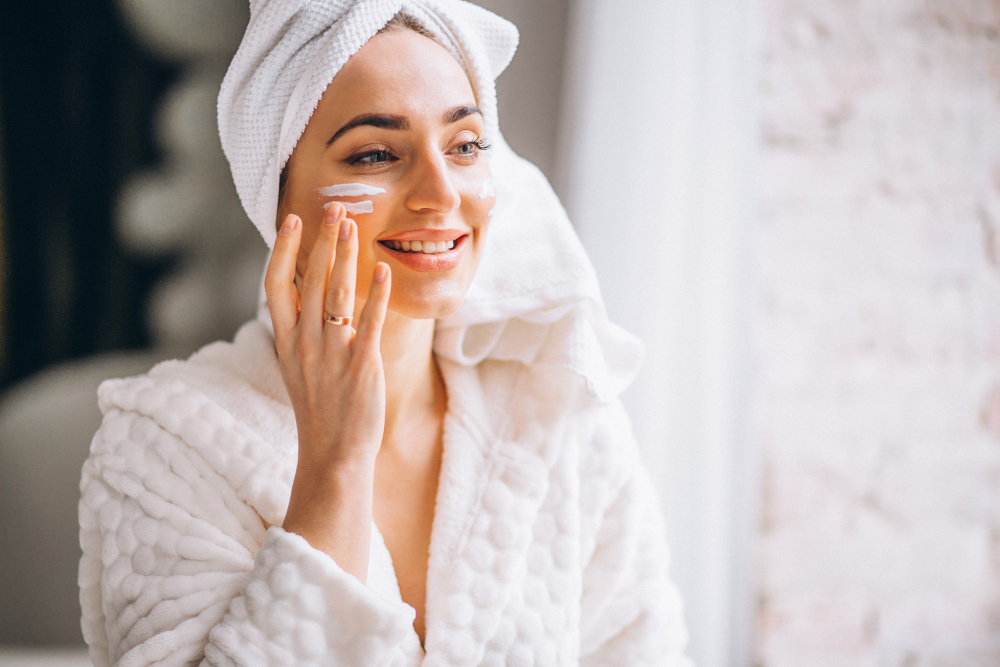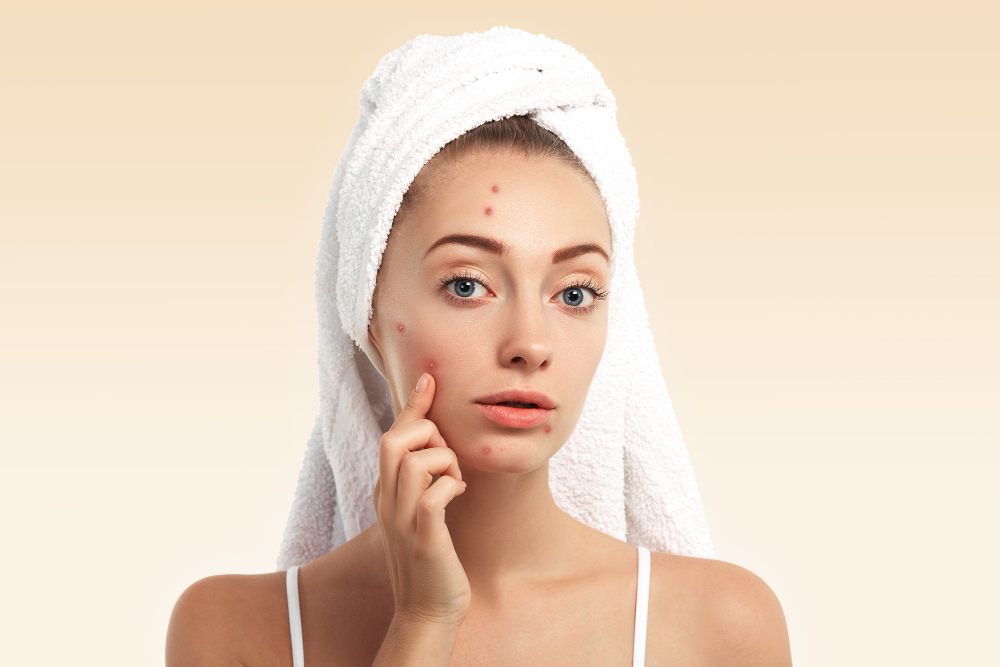Acne is a common skin condition that affects people of all ages. It can be embarrassing and cause low self-esteem, but it doesn’t have to! With the proper knowledge, you can understand what causes acne breakouts and learn how to prevent them from happening in the first place.
This article will discuss what causes acne, including various factors you can manage. It will also look at tips for preventing breakouts before they start so you can enjoy clear skin without worrying about unsightly blemishes. So if you’re ready to get your skin back on track, keep reading!
How do skin breakouts occur?
Acne vulgaris or acne breakouts occur when your skin’s oil glands become clogged with dead skin cells and excess sebum (oil). This mix of oils and cells can clog pores and hair follicles and cause bacteria to form, resulting in a lesion. Pimples result from these lesions, ranging in size from tiny whiteheads to large red bumps. The blockage can be caused by various factors, including but not limited to the following:
1. Hormones
During puberty, hormones can cause an increase in androgen levels that trigger the sebaceous glands to produce more sebum. This excess oil can lead to clogged pores and breakouts. Some medications, such as certain birth control pills, can also cause an increase in androgen levels.
2. Stress
Stress can directly affect the skin because it triggers the body to produce more androgens, leading to pimples. When stressed, your body releases a hormone called cortisol, which can cause inflammation and worsen existing breakouts. Adult acne is usually caused by stress.
3. Diet
Certain foods have been linked to increased sebum production, which can trigger acne and lead to breakouts. Foods known to cause and worsen acne include dairy, refined carbohydrates (such as white bread and pasta), chocolate, and other high-sugar foods. Some medical experts also believe greasy, high-fat foods can cause breakouts because they increase sebum production.
4. Hygiene
Poor hygiene can leave your skin vulnerable to bacteria and dirt, making acne worse. When your skin is not properly cleaned, bacteria can build up on the surface and lead to clogged pores. Additionally, wearing makeup that has not been removed properly before bed can further contribute to the formation of pimples. One’s everyday skincare routine should include cleansing, exfoliating, and moisturizing to keep skin healthy.
5. Genetics
Severe acne can also be caused by genetics, meaning some people are more prone to breakouts than others. If you have a family history of acne, there is a greater chance that you will experience breakouts as well. Acne-prone skin is often oilier and more sensitive than normal skin. For this skin type, natural ingredients for skincare are recommended.
There is also cystic acne, where large, painful bumps filled with pus form beneath the skin. This is considered to be a more severe acne type and can require medical treatment to clear up. By understanding what can cause acne breakouts, you can take proactive steps to prevent them from occurring.
What are the symptoms of acne?
Depending on the severity of the condition, acne can range from mild to severe. Symptoms usually include redness, swelling, and lesions on the face, chest, back, shoulders, and neck. In some cases, the breakouts can become painful as well as unsightly. When left untreated, it can also lead to discoloration and acne scars.
Many people also feel embarrassed and frustrated when dealing with acne, which can cause self-esteem issues. One’s mental health can also be affected due to acne, leading to depression and anxiety. Some people may even develop body dysmorphic disorder, a condition characterized by an obsession with perceived flaws in one’s appearance.
What are some recommended treatments for acne breakouts?
Depending on the severity of the acne, there are various ways to treat acne. Some of the most common treatments for acne breakouts include:
1. Topical creams and gels
These are applied directly to the skin and contain ingredients that help kill bacteria, reduce inflammation, and unclog pores. Examples of topical treatments include benzoyl peroxide, salicylic acid, and retinoid creams.

2. Oral medications
Oral medications are taken by mouth and can help reduce inflammation, bacteria, and oil production. Examples include antibiotics, birth control pills, spironolactone, and isotretinoin.
3. Light therapy
Light therapy is a procedure that uses lasers or light-emitting diodes (LEDs) to reduce inflammation and kill bacteria on the skin. It is generally used for mild to moderate acne and cystic acne in some cases.
4. Chemical peels
Although chemical peels can be used for various skin conditions, they are sometimes used on acne-prone skin. A chemical solution is applied to the face and allowed to dry, resulting in the shedding of dead skin cells and unclogging pores. The peel can also help reduce inflammation and improve overall skin tone.
5. Microdermabrasion
This treatment uses a device to exfoliate and remove dead skin cells. It can help reduce acne breakouts and even out skin tone.
The best way to treat acne breakouts is to see a dermatologist, as they can discuss the various treatment options with you and help determine the best course of action for your unique case. With strategic lifestyle changes, such as washing your face frequently and eating more healthy foods, alongside professional medical treatments, you can manage your skin health and enjoy clear skin without embarrassment.
How long does it take for acne to go away?
The length of time it takes for acne to go away can depend on the severity and type of acne, as well as the person’s individual skin type and the treatments being used. Mild acne can usually be cleared up in a few weeks with proper treatment and care.
However, more severe cases of acne can take up to several months or longer to heal. Additionally, it is important to note that sometimes breakouts may come back even after they have cleared up. To reduce the chances of this happening, it is important to follow your dermatologist’s instructions and use any prescribed medications as directed.
Some situations may also change the type of treatment for acne. For example, pregnant women should not use certain medications, such as isotretinoin, due to the potential risks for the baby. Your dermatologist can help you understand and choose the best course of action for your specific situation.
Acne breakouts can be embarrassing and cause low self-esteem, but with the proper knowledge, you can understand and manage what causes skin breakouts. Different factors can lead to acne, so it is important to understand how lifestyle choices and genetics can play a role in breakouts. With the right treatments, you can enjoy clear skin without feeling self-conscious. Speak with a dermatologist to determine the best treatment for your unique case and start your journey toward beautiful, acne-free skin.

